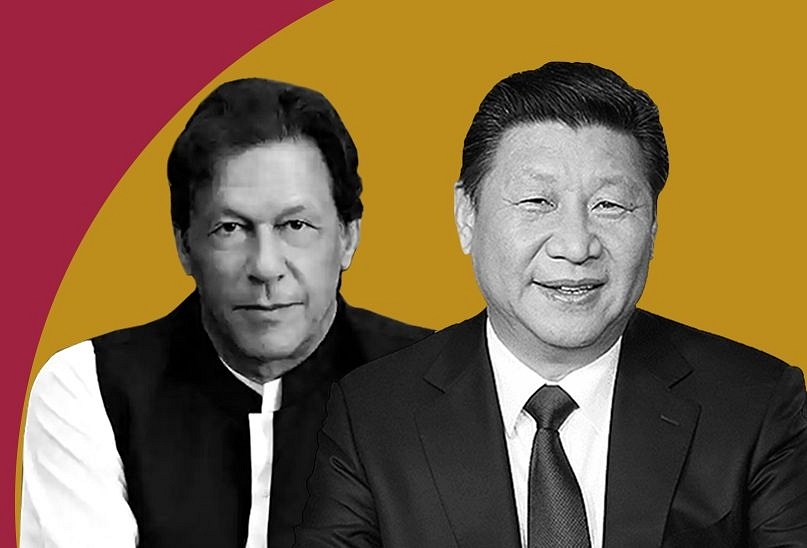News Brief
As Imran Khan Government Takes Over Strategic Islands In Arabian Sea From Sindh, There Is Fear That They Will Be Handed Over To China
- While Pakistan’s government says that the islands have been taken over for development activities, politicians and activists in Sindh fear that they will be handed over to China as part of the Belt and Road Initiative.

Pakistan Prime Minister Imran Khan, Chinese President Xi Jinping and North Korean leader Kim Jong-un.
Politicians and activists in Pakistan’s south-eastern state of Sindh fear that the two islands taken over by the national government led by Imran Khan will be handed over to China as part of the Belt and Road Initiative (BRI).
The strategically located islands, which the Pakistan People’s Party government in Sindh says belong to the state, have been taken over by the army-backed government of Imran Khan through an ordinance for “development”.
The two islands — Bundal and Bhuddo — are located south of Karachi. These islands, spanning 8 kilometres, are the largest along the coast of Sindh.
While Pakistan’s federal government says that the islands have been taken over for development of trade, investment and international tourism, many believe the army and Imran Khan are preparing to hand over these assets to China.
Politicians and activists in Pakistan’s south-eastern state of Sindh fear that the two islands taken over by the national government led by Imran Khan will be handed over to China as part of the Belt and Road Initiative .
Pakistan’s stated goal of developing the islands for trade and investment “seem to have been taken straight out of Beijing's BRI playbook,” Mohan Malik, a visiting fellow at Near East South Asia Center for Strategic Studies in Washington, told Nikkei.
In the past, Pakistan handed over the port of Gwadar, located in Baluchistan, to China. China has invested billions in the project and Chinese companies have led the development of the port and the adjoining areas. In 2017, Pakistan leased the port to a Chinese state-owned company for a period of 40 years.
A permanent Chinese presence on the Pakistani coast could serve as a springboard for its operations in the Arabian Sea and the Strait of Hormuz. At the same time, it will give the Chinese an opportunity to keep an eye on Indian naval activities along the western cost and in the wider Indian Ocean Region.
China has already taken over the port of Humbantota in Sri Lanka on a 99-year lease after Colombo could not manage to run it profitably, and struggled to make payments on the debt it took from China for the port project.
Pakistan, experts say, could end up in a similar situation given that it already owes billions of dollars to China in the form of loans taken over the years for BRI-linked infrastructure projects and to avert a balance of payments crisis.
The development of the islands would involve, among other things, reclamation of land. With Pakistan having no experience or expertise in this field, it will have to turn to China for assistance. China has been building artificial islands in the South China Sea through land reclamation and has built the capacity to undertake large projects.
The development of the islands will also need investment. At this moment, China is the only source of investment for Pakistan, experts say.
Introducing ElectionsHQ + 50 Ground Reports Project
The 2024 elections might seem easy to guess, but there are some important questions that shouldn't be missed.
Do freebies still sway voters? Do people prioritise infrastructure when voting? How will Punjab vote?
The answers to these questions provide great insights into where we, as a country, are headed in the years to come.
Swarajya is starting a project with an aim to do 50 solid ground stories and a smart commentary service on WhatsApp, a one-of-a-kind. We'd love your support during this election season.
Click below to contribute.
Latest